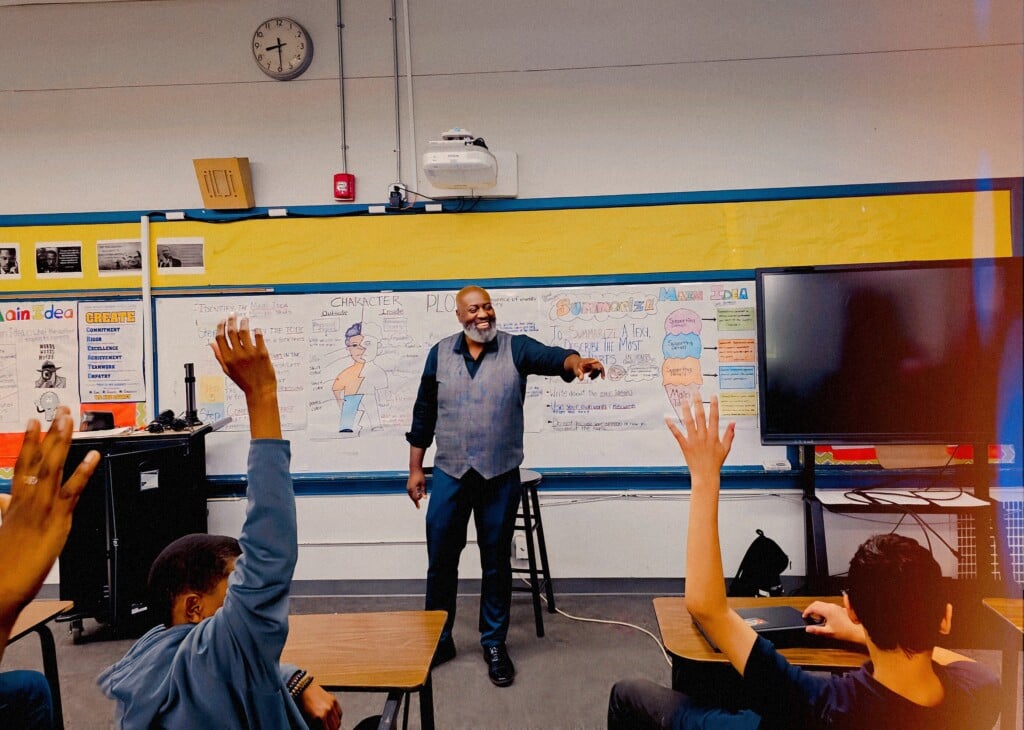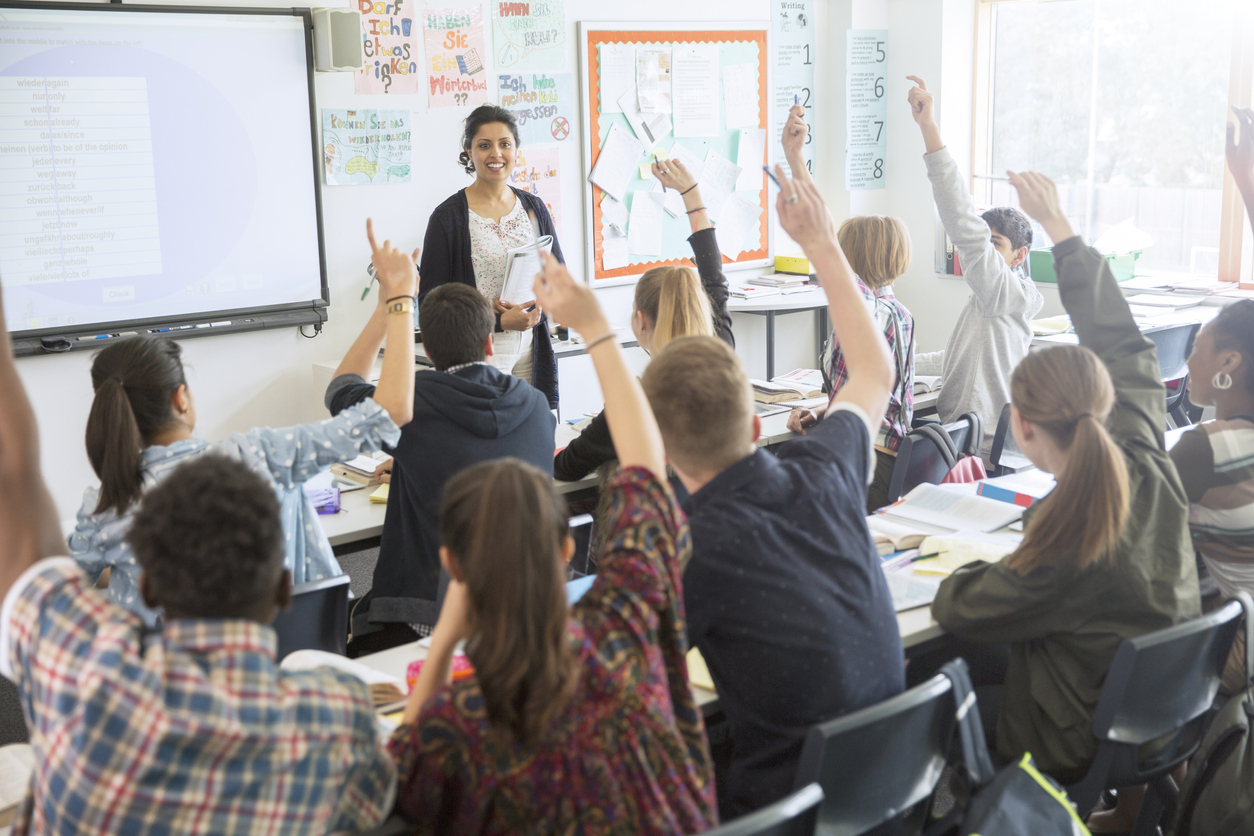Checking Out the Different Teaching Approaches in Key Scientific Research Education And Learning Today
Inquiry-based discovering, hands-on experiments, and the integration of innovation are redefining how teachers involve young minds. Additionally, collective strategies and separated instruction are being utilized to provide to the varied needs of trainees, boosting both interaction and understanding.
Inquiry-Based Knowing
Inquiry-Based Learning (IBL) is an instructional technique that encourages students to check out clinical principles through doubting, examination, and hands-on experimentation. This method highlights the duty of students as active individuals in their discovering, advertising crucial thinking and analytical abilities. By involving with real-world inquiries, pupils become motivated and curious, which improves their understanding of scientific principles.
In IBL, instructors function as facilitators, assisting trainees as they browse their queries rather than providing info directly. This student-centered method enables for distinction, fitting different discovering styles and paces. Students create abilities in creating theories, creating experiments, and evaluating data, which are important for scientific literacy.
In addition, IBL cultivates cooperation amongst trainees, motivating them to share searchings for and ideas. This collective inquiry promotes social abilities and a feeling of neighborhood within the classroom. Furthermore, the procedure of query encourages strength, as trainees learn to embrace failing as a stepping rock toward understanding.
Hands-On Experiments
Hands-on experiments are a vital part of effective scientific research education, complementing the concepts of inquiry-based discovering. These experiments allow pupils to engage straight with scientific principles, promoting a deeper understanding with experiential learning. By adjusting materials and observing results, young learners can comprehend abstract theories in concrete ways.
Such activities promote important thinking and analytic skills, as trainees assume results, conduct experiments, and assess results. This procedure encourages them to ask concerns, improve their understanding, and develop a clinical state of mind. Hands-on experiments can be tailored to diverse knowing designs, guaranteeing that all trainees have the possibility to involve meaningfully with the web content.
Moreover, hands-on experiments commonly urge cooperation amongst peers, promoting teamwork and communication skills. Working in groups enables students to share ideas, talk about findings, and pick up from each other, which improves their general academic experience.
Integrating hands-on experiments into the main science curriculum not only enhances the learning environment however also cultivates a lifelong passion in scientific research. By proactively taking part in their education, trainees are more probable to create an interest for clinical inquiry that extends past the class.

Innovation Assimilation
Incorporating innovation into main science education has actually come to be significantly crucial in cultivating pupil interaction and improving finding out end results. Making use of electronic devices, such as interactive simulations, virtual labs, and instructional software program, gives students with chances to check out scientific principles in ingenious methods. These resources promote a much deeper understanding of complex subjects by enabling learners to envision and control variables that would be not practical in a standard classroom setup.
Furthermore, technology assimilation motivates personalized finding out experiences. Trainees can progress at their own pace, taking another look at challenging ideas through multimedia sources, which accommodate various learning designs. This adaptability not just supports specific growth however additionally cultivates a feeling of autonomy in learners.
In addition, technology offers as a bridge to real-world scientific research, linking pupils with current research study and specialist contributions. Access to clinical journals and on-line databases expands pupils' perspectives on scientific questions and promotes important assuming skills.
Collaborative Knowing
Joint learning plays an important duty in key science education by promoting team effort and interaction abilities amongst pupils. This method motivates learners to function with each other, share expertise, and participate in analytic, which enhances their understanding of scientific concepts. By joining group activities, students learn to articulate their ideas, listen to diverse perspectives, and negotiate services, all of which are important abilities in both scholastic and real-world contexts.

Research suggests that collaborative knowing can lead to boosted inspiration and engagement in scientific research subjects, as pupils find pleasure in common experiences (primary science tuition Singapore). In addition, this method prepares trainees for future joint endeavors, furnishing them with the abilities essential for effective synergy in college and expert settings. Inevitably, embracing collaborative discovering in see it here key scientific research education can dramatically improve the learning experience and promote a deeper understanding of scientific inquiry
Separated Guideline

Separated instruction can materialize in different means, such as differing the web content, processes, or products of understanding. Educators might utilize tiered assignments that provide differing levels of complexity, permitting trainees to work at their respective preparedness degrees. Additionally, adaptable organizing techniques can facilitate cooperation among students with click for source various abilities, cultivating peer discovering.
Assessment plays an important role in this strategy, as it notifies instruction and aids educators recognize each trainee's unique requirements. Formative evaluations, such as tests and observations, can lead instructors in adjusting their strategies to boost learning outcomes. primary science tuition Singapore. Eventually, by implementing distinguished guideline in main science education and learning, educators can grow an extra reliable and equitable understanding environment, equipping all pupils to reach their full capacity in comprehending clinical sensations
Conclusion
In recap, the diverse training techniques in key science education, consisting of inquiry-based understanding, hands-on experiments, innovation assimilation, collaborative understanding, and separated guideline, jointly add to a more efficient understanding setting. These approaches advertise crucial thinking, analytic abilities, and a much deeper understanding of clinical ideas. By carrying out these strategies, educators can create encouraging and interesting class that resolve the diverse requirements of trainees, eventually promoting a long-lasting rate of interest in science and enhancing scholastic success.
Inquiry-Based Learning (IBL) is an instructional technique that motivates students to check out clinical principles with doubting, investigation, and hands-on trial and error.Collective discovering plays an important role in key scientific research education by cultivating synergy and communication skills amongst students.Study shows that collective knowing can lead to raised inspiration and engagement in scientific research topics, as trainees locate pleasure in shared experiences.In promoting a comprehensive discovering environment, set apart direction arises as a vital method to accommodate the varied needs and capabilities of students in main science education and learning. Ultimately, by carrying out distinguished guideline in main scientific research education, instructors can cultivate a much more reliable and fair knowing setting, empowering all trainees to reach their complete potential see in comprehending clinical sensations.